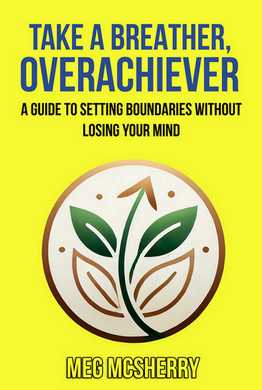How to Reclaim Your Peace and Power: Practical Stress Management Techniques
Stress—it’s the invisible weight we all carry, the constant companion that whispers, "You have too much to do and not enough time to do it." But what if I told you that stress isn’t the enemy? That, in fact, you can learn to manage it, harness its energy, and use it as a stepping stone to a more balanced and fulfilling life?
I get it. A few years ago, I found myself completely overwhelmed. I was juggling a demanding career, family responsibilities, and a never-ending to-do list. I woke up feeling exhausted, my mind already racing with all the things I had to accomplish. Sound familiar? It wasn’t until I implemented practical stress management techniques that I started to reclaim control over my life. Today, I want to share those strategies with you—because you don’t have to live in survival mode.
1. Reframe Your Mindset Around Stress
Stress isn’t inherently bad. In fact, a certain level of stress can be motivating. The problem arises when it becomes chronic and starts to control us instead of us controlling it.
Shift your perspective: Instead of saying, "I’m so stressed out," reframe it as, "I’m feeling challenged, and I’m capable of handling this."
Identify what’s within your control: You can’t control everything, but you can control your response.
Use stress as feedback: Stress is often a sign that something needs to change—whether it’s your schedule, your priorities, or your boundaries.
2. Master the Power of the Pause
In the midst of stress, your nervous system craves a break. The fastest way to reset is through intentional pauses:
Deep breathing: Try the 4-7-8 breathing technique—inhale for 4 seconds, hold for 7, and exhale for 8.
Mindful moments: Take a 60-second pause, close your eyes, and focus on your breath or a calming phrase like, "I am safe, I am in control."
Mini-meditations: Just 5 minutes of guided meditation can help you re-center.
3. Move Your Body to Move Your Mind
Stress lives in the body as much as it does in the mind. When you move, you release built-up tension and flood your system with feel-good endorphins.
Stretching: Simple stretches can help relieve physical tension.
Walk it out: A brisk 10-minute walk can do wonders for your mood.
Shake it off: Literally—shaking your arms and legs for 30 seconds can help release nervous energy.
4. Set Boundaries Like Your Peace Depends on It (Because It Does)
One of the biggest stressors? Saying yes to too much and feeling guilty about saying no.
Be clear and firm: "I appreciate the opportunity, but I can’t commit to that right now."
Schedule non-negotiable recharge time: Treat your self-care time like an important meeting—you wouldn’t cancel a meeting with your boss, so don’t cancel on yourself.
Limit energy-drainers: Recognize the people or activities that deplete you and set limits accordingly.
5. Create a Simple, Stress-Reducing Morning Routine
The way you start your day sets the tone. A rushed, chaotic morning often leads to a day that feels out of control. Instead, try:
Waking up 15 minutes earlier to give yourself space to breathe.
Starting with gratitude: Write down three things you’re grateful for.
Avoiding your phone first thing in the morning: Instead of diving into emails or social media, take a moment to set an intention for the day.
6. Manage Your Mind: Thought Detox
Stress isn’t just about what’s happening—it’s about how we think about what’s happening.
Catch and challenge negative thoughts: Ask, "Is this thought helpful or harmful?"
Practice self-compassion: Replace "I should have done better" with "I did my best, and that’s enough."
Journal to declutter your mind: A brain dump of your worries can bring clarity and relief.
7. Fuel Your Body with Stress-Reducing Nutrition
What you eat directly impacts your stress levels.
Limit caffeine and sugar: Both can cause energy crashes that increase anxiety.
Stay hydrated: Dehydration can amplify stress and fatigue.
Eat stress-busting foods: Omega-3s (salmon, walnuts), magnesium-rich foods (spinach, almonds), and vitamin C (oranges, bell peppers) help regulate cortisol levels.
8. Tap into the Power of Connection
We weren’t meant to handle stress alone. Surround yourself with people who lift you up.
Call a friend: Sometimes, just talking it out helps lighten the load.
Laugh more: Laughter is an instant stress-reliever—watch a funny video or share a joke with someone.
Ask for support: There’s strength in seeking help, whether from a friend, coach, or therapist.
Key Takeaways
Stress isn’t the enemy—your response to it is what matters.
Small pauses throughout the day can help reset your nervous system.
Movement is medicine—find ways to move that feel good.
Setting boundaries is an act of self-care, not selfishness.
Your morning routine can make or break your stress levels for the day.
Thoughts shape your stress—be mindful of your inner dialogue.
Nutrition plays a role in how well your body handles stress.
Connection is key—don’t go through stress alone.
Final Thought: You Deserve Peace
If there’s one thing I want you to take away from this, it’s this: You are not powerless against stress. You have the ability to change how you experience it, and in doing so, you reclaim your peace, your energy, and your life.
So today, choose one stress-reducing technique from this list and commit to it. Just one. Small changes lead to massive transformations.
You are stronger than you think, and you are worthy of a life that feels balanced, joyful, and in control.
Now go take that deep breath—you’ve got this!
Need more help?
Check out Meg McSherry's new book 








